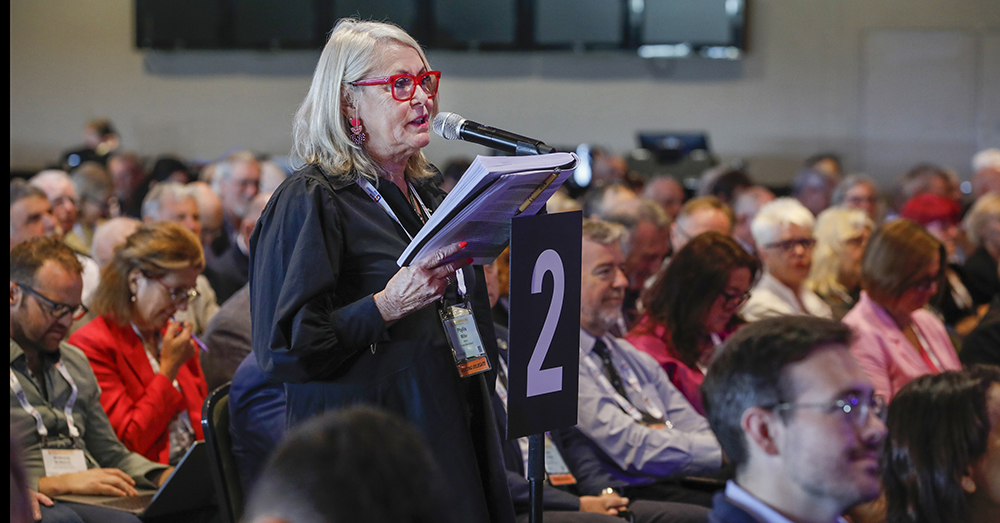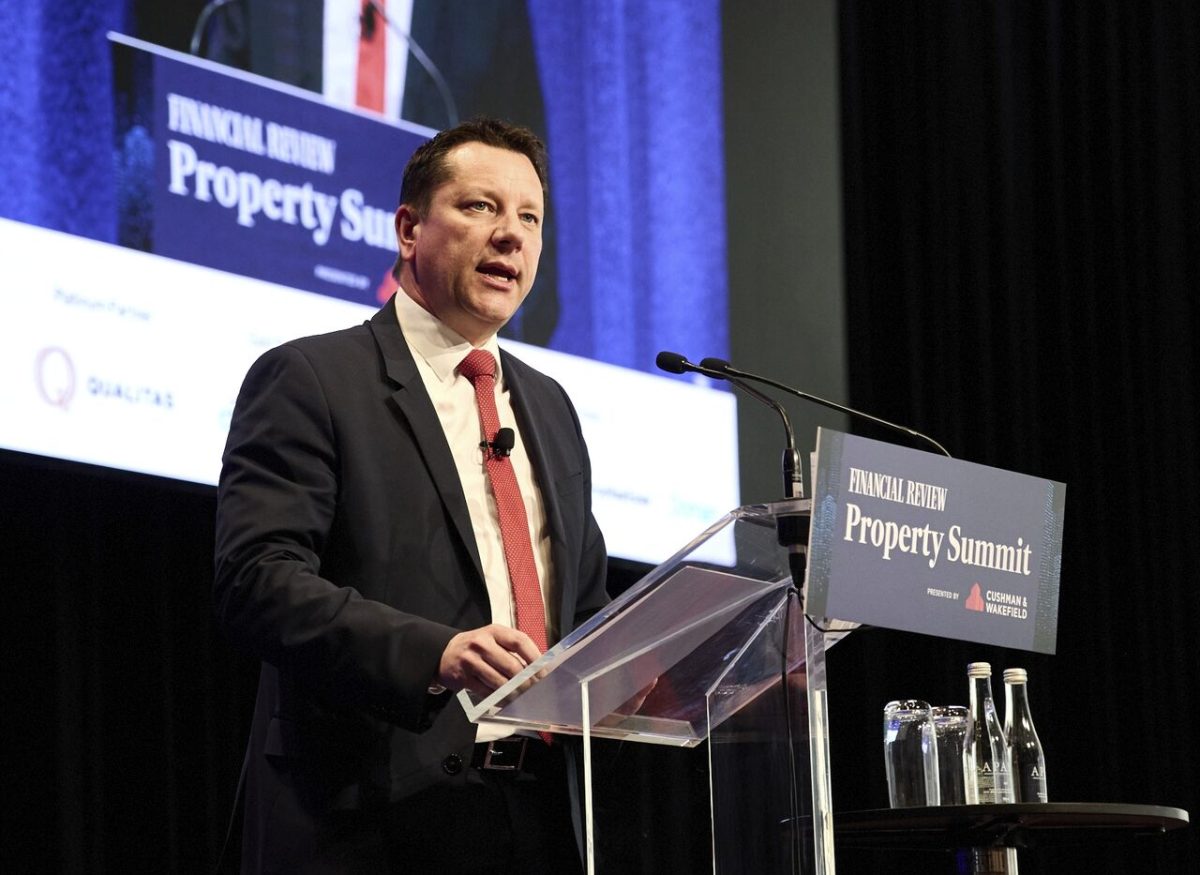
Forbes Shire Mayor Phyllis Miller OAM was among those who supported the motion to retain communities’ voices in large housing developments via their democratically elected councils. Photo: LGNSW.
At the recent peak local government conference for NSW in Tamworth, delegates from across the state came together in a “unanimous move” to condemn a new planning body that will bypass councils and communities on large housing developments.
The Local Government NSW (LGNSW) annual conference showed widespread concern from the sector following Premier Chris Minns’s announcement. On 15 November, he said the government would establish a three-person planning authority responsible for housing developments of more than $60 million in the Sydney region and over $30m in rural and regional areas.
As part of this reform, he said it was also introducing a new pathway that would allow selected projects to go through a state-led fast-track rezoning that did not require a council process. These projects would be expected to deliver significant housing gains, but required more significant rezonings.
While the Premier conceded these as “huge reforms that we are not proposing lightly”, he said “the scale of the problem requires this significant change”.
Planning Minister Paul Scully said the former government had increased red tape so that gaining home-building approval had become extremely difficult. However, his party was doing everything in its power “to tackle the housing crisis and encourage developers to build and boost housing supply and overall affordability”.
“These latest reforms mean the state is taking control of major housing projects so that they have the attention they deserve and get through the assessment process much faster,” Mr Scully said.
For more than a decade in NSW, Mr Minns said, “governments have made it harder to build the homes we need, not easier – but this cannot continue if we want to be a city that young people can afford to live in”.
A big part of these planning reforms is focused on the state’s capital, because, as the Premier said, “too many well-located areas in Sydney have put too many barriers up for too long”.
However, LGNSW president Darriea Turley AM believes that due to the “multifaceted” nature of the housing crisis, it “requires all three spheres of government working together”.
“The local government sector is already doing our part and delegates to our conference are keen to work with State Government for further reform,” Councillor Turley said.
“What we don’t need, though, is for councils and communities to be pushed aside and excluded from the process in a move that will only lead to inappropriate overdevelopment and increased profits for developers.”

A couple of months ago, NSW Planning Minister Paul Scully announced his big push to speed up the approval process. Photo: LinkedIn.
Cr Turley said these reforms only added more uncertainty to the planning systems and would further delay housing construction on already approved sites.
“Why would developers build under the many approvals that already exist, when the NSW Government is effectively encouraging them to lodge new applications that exceed local planning controls, and where they can make windfall profits from spot rezoning?” she asked.
“We call on the Minns Government to abandon plans for this undemocratic body and to work with us and with our communities.”
This new pathway for major housing developments will be overseen by the new Housing Delivery Authority (HDA) and will be established within the Department of Planning, Housing and Infrastructure (DPHI).
The HDA will include the Premier’s Department Secretary Simon Draper, the Department of Planning Secretary Kiersten Fishburn, and the Infrastructure NSW chief executive officer Tom Gellibrand.
Proposals are to be selected through an expression-of-interest (EOI) process with established criteria, but will not require local councils’ approval, so it can potentially reduce the approval timeline by years.
While the government touts the reforms’ benefit to local councils because it will free up their resources “to assess less-complex development applications before them”, Cr Turley said it meant ”developers will now run our communities, not residents”.
“Councils are in shock and are bitterly disappointed,” she said. “Removing councils from the spot-rezoning process means removing the community’s voice.
“This government is quick to blame delays on councils. Yet it is well established that the overwhelming cause of delays stems from infrastructure delivery issues, cost of materials, labour and financing harming project viability, and other hold-ups from a multitude of government agencies.
“The housing crisis is serious and requires genuine, evidence-based solutions, not scapegoating that ignores the broader challenges in housing construction that are beyond the control of the planning system.”











